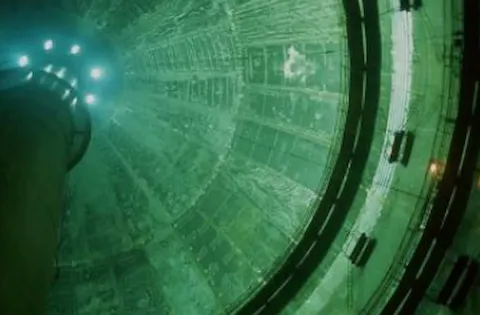IMO update: Sub-Committee on Carriage of Cargoes and Containers – CCC 7
The 7th session of the IMO Sub-Committee on Carriage of Cargoes and Containers (CCC 7) was held remotely from 6 to 11 September 2021. CCC 7 finalized interim guidelines for the safety of ships using fuel cell power installations and agreed to add high manganese austenitic steel as an approved material to the IGF and IGC Codes.
Relevant for ship owners and managers, fuel and cargo tank manufacturers and yards.
Meeting highlights
- Finalized interim guidelines for the safety of ships using fuel cell power installations
- Agreed on the suitability of high manganese austenitic steel for butane and methane cargo and fuel tanks to be included in the IGF and IGC Codes
- Agreed on amendments to the IMSBC and IMDG Codes
Introduction
The 7th session of the IMO Sub-Committee on Carriage of Cargoes and Containers (CCC 7), held remotely from 6 to 11 September 2021, was chaired by Ms M. Adams from Marshall Islands.
The following is a summary of the items discussed during that session assumed to be significant and of interest to the shipping industry.
As CCC is a Sub-Committee, all decisions concerning rules, regulations and dates are subject to further consideration and approval by the Maritime Safety Committee (MSC), Marine Environment Protection Committee (MEPC) or by the Assembly.
Amendments to the IGF Code and development of guidelines for low-flashpoint fuels
CCC finalized the draft Interim Guidelines for the safety of ships using fuel cell power installations, which is expected to be adopted by MSC 105 in April 2022. The goal of the interim guidelines is to provide an international standard for the arrangement and installation of fuel cell power installations on board ships. It covers the different aspects from the fuel inlet of the fuel cell space up to the exhaust gas system. For the fuel storage and the fuel supply to the fuel cell space, the specific chapters of the IGF Code applies.
Requirements for equipment-protected fuel cell spaces were also discussed. Due to missing requirements for the fuel cell stack, CCC concluded for this fuel cell space concept that all electrical equipment should be certified for zone 1. The fuel cell stack is not considered as a source of ignition if the surface temperature is below 300 °C and the stack can be isolated in case of deviating operational condition.
CCC agreed on a work plan for the development of provisions for new low-flashpoint fuels under the IGF Code, including hydrogen, ammonia, LPG and methyl/ethyl alcohols. The development of guidelines for ships using ammonia as fuel depends on the outcome of MSC 104.
High manganese austenitic steel and related guidance for approving alternative metallic material for cryogenic service
CCC 7 evaluated reports on simulations and tests for stress corrosion resistance, of which most were assessed to be satisfactory for confirmation of the suitability of high manganese austenitic steel (hi-Mn steel) for cryogenic service.
Therefore, the addition of hi-Mn steel to the IGC and IGF Codes was supported. Hi-Mn steel is deemed suitable for type A, B and C tanks, for among others butane and methane (LNG) as cargo or fuel. Whereas for ammonia, some member states assessed that the corrosion tests performed so far were not sufficient. Suitability of hi-Mn steel for ammonia will be evaluated further by a Correspondence Group.
CCC 7 also elaborated a relevant test programme, which was implemented in the guidelines for hi-Mn steel, as well as in the guidelines for alternative metallic materials.
Amendments to the IMSBC Code and supplements
The following topics were discussed and forwarded to the Editorial and Technical Group (E&T 35), to be held from 13 to 17 September 2021, for consideration and implementation in the draft amendment 06-21 of the IMSBC Code:
- Reclassification of ammonium nitrate-based fertilizer (nonhazardous)
- Materials meeting the criteria for UN 3077 shall not be assigned to UN 3077 and class 9 in the Code – the box “class” in the individual cargo schedules is left blank
- New cargo schedule for granular triple superphosphate
The draft amendment 06-21 to the IMSBC Code is expected to be adopted by MSC 105 in April 2022.
The following other topics were discussed and forwarded to the Editorial and Technical Group (E&T 36), to be held in spring 2022, for further consideration and implementation in amendment 07-23 of the IMSBC Code:
- Numbering system for dry bulk cargoes (substance identification number) to improve the identification of the different cargoes
- Revised draft schedule for direct reduced iron (D) (byproduct fines with moisture of at least 2%)
Amendments to the IMDG Code and supplements
Various new proposals for the next amendment of the IMDG Code were discussed and forwarded to the Editorial and Technical Group (E&T 35), to be held from 13 to 17 September 2021, such as:
- Requirements on explosion protection for container tracking devices / data loggers
- Reclassification of iron powder
The 41-22 amendment of the IMDG Code is expected to the adopted by MSC 105 in April 2022.
Furthermore, a correspondence group was be established to proceed with the review of the special provisions (SPs 9XX) and to further discuss and improve the provisions for the carriage of charcoal (UN 1361 CARBON) in the IMDG Code.
Draft amendments / Unified Interpretations
Due to time constraints, the working group was not able to finalize the draft amendments related to Part A-1 of the IGF Code and the Unified Interpretations. CCC decided to further proceed with the proposed amendments and interpretations in a Correspondence Group reporting to CCC 8 in 2022.
Contact
- For customers:
DATE - Direct Access to Technical Experts via My Services on Veracity. - Otherwise:
Use our office locator to find the nearest DNV office.
